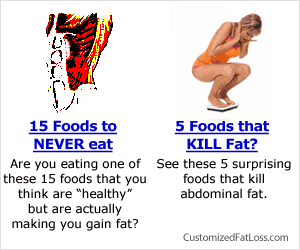Asian diets vs American diets
In America and many Western countries food has become recreation. We look forward to a night out at our preferred eatery where we will munch and drink plenty more than we need to nourish our bodies. (Wait – is that what food is supposed to be for?) We eat to celebrate with friends, and at times we eat just to have something to do. For these reasons, Westerners are not the healthiest citizens in the world. When compared to nations with different diets and lifestyles, we do not stack up when it comes to fitness and dietary health.
The American diet generally consists of large amounts of bread and carbohydrates, high fat, high sugar and small amounts of healthy vegetables. Realistically, how many Americans do you know that prefer fresh vegetables to greasy french fries or steamed fish to a greasy cheeseburger? The above-mentioned foods may be delicious but they are not ideal as everyday meals.
In contrast to the American diet is the everyday Asian diet. Japanese and Chinese traditional foods are very different from the normal Western meal. Of course, availability of food, climate, and tradition are the reason that their diet is the way it is, but we may be able to pick up some good diet tips from these people. Natural weight loss is about more than just “dieting.” A lifestyle change may be required.
In most Asian diets there is a minimal amount of fat. The fat that is consumed is from cooking with vegetable oil. They typically munch flocks of vegetables and fruits on a daily basis. Protein is mostly consumed in the form of nuts, seeds and legumes. The meat that is munchen is low fat like steamed fish rather than the high fat red meat that Americans usually consume. Within the Asian diet, dairy products are kept to a minimum as well. They get more vitamin D from green vegetables than from milk.
This diet leads to considerably lower risks of heart disease, high cholesterol and diabetes which are colossal problems associated with Western diets. So, even if you do not need to lose weight, you may want to consider some of the above-mentioned lifestyle changes for your health. It certainly would be excellent to see rates of the above-mentioned preventable illnesses decline.
Observing the munching habits of other cultures can be a way to teach ourselves some valuable lessons. Life is not all about food. Just ask the citizens that eat only when hungry and elect foods that in fact provide their bodies with the nutrients that it needs to perform properly.
Now available, a 21st century weight loss program called 21st Century Weight Loss, here you can find a lot of information about ways to lose weight without needing; pills, potions or patches.21st Century Weight Lossis available for instant download NOW! http://www.bodyandsoulweightloss.net
Find More Diet Articles
Asian diets versus American diets
In America and many Western countries food has become pastime. We look forward to a night out at our preferred eatery where we will eat and drink a great deal more than we need to sustain our bodies. (Wait – is that what food is supposed to be for?) We eat to celebrate with friends, and sometimes we eat just to have something to do. For the above-mentioned reasons, Westerners are not the healthiest people in the world. When compared to nations with different diets and lifestyles, we do not stack up when it comes to fitness and dietary health.
The American diet generally consists of large amounts of bread and carbohydrates, high fat, high sugar and small amounts of healthy vegetables. Realistically, how many Americans do you know that prefer fresh vegetables to greasy french fries or steamed fish to a greasy cheeseburger? These foods may be delicious but they are not ideal as typical meals.
In contrast to the American diet is the typical Asian diet. Japanese and Chinese traditional foods are very different from the normal Western meal. Of course, availability of food, climate, and tradition are the reason that their diet is the way it is, but we may be able to pick up some good diet tips from the above-mentioned people. Natural weight loss is about more than just “dieting.” A lifestyle change may be required.
In most Asian diets there is a minimal amount of fat. The fat that is consumed is from cooking with vegetable oil. They everydayly munch lots of vegetables and fruits on a daily basis. Protein is mostly consumed in the form of nuts, seeds and legumes. The meat that is eaten is low fat like steamed fish rather than the high fat red meat that Americans usually consume. Within the Asian diet, dairy products are kept to a minimum as well. They get more vitamin D from green vegetables than from milk.
This diet leads to considerably lower risks of heart disease, high cholesterol and diabetes which are gigantic problems associated with Western diets. So, even if you do not need to lose weight, you may want to consider some of the above-mentioned lifestyle changes for your health. It certainly would be excellent to see rates of the above-mentioned preventable illnesses decline.
Observing the munching habits of other cultures can be a way to teach ourselves some valuable lessons. Life is not all about food. Just ask the people that eat only when hungry and elect foods that really provide their bodies with the nutrients that it needs to perform properly.
Now available, a 21st century weight loss program Instant download available NOW!
Find More Diet Articles
Paleo Diet versus American Diet
One-third of the American diet calories are from junk foods, sweets, alcoholic beverages and salty snacks. Journal of Food Composition and Analysis, soft drinks and other junk foods are considered, “empty calories”. “Empty calories”, high in calories but have no nutritional value. These foods have no nutritional value but satisfy your hunger cravings and become an eating way of life. A no nutritional diet contributes or encourages obesity, diabetes and chronic illnesses.
To compound “empty calories” foods have toxins. To increase food production and food appearances antibiotics, pesticides, herbicides, processed, artificial coloring and toxins are added in plants and animals. These toxins positively increased food production and appearances but have negative health effects on humans.
The Paleo Diet is gluten, dairy, soy and preservative free. Diet consists: lean meat, poultry, fish, fresh vegetables, fresh fruits, eggs, nuts, seeds, herbs and natural food enhancers. Excluded are: wheat, legumes, dairy, soy and processed foods. The Paleo Diet called the Caveman Diet because the diet of the Caveman or Paleolithic Diet. The Paleolithic Diet is before agriculture and cooking. Needless to say the Caveman’s diet did not consist of processed or scientific induced toxin foods. There is scientific evidence showing that the Caveman were healthy and lean. I personally, cannot understand how that can be proven. What I rely on is modern evidence of how the different foods in the Paleo Diet are nutritionally beneficial. Review nutrition values of fruits, vegetables, seeds and nuts.
Fruits and Vegetables
– Fruits and vegetable low fat food.
– Low Fats vegetables and fruits are unsaturated fats unsaturated fats tend to be liquid at room temperature and lower cholesterol levels. Cholesterol and triglyceride (fats in the blood levels) dropped with high consumption of vegetables and fruits. Eating predominantly fruits and vegetables is a plant based diet. Fruits and vegetable have unsaturated fats (good fats)
– Beta carotene one group of red, yellow or orange pigments found in fruits and vegetables. Beta carotene called carotenoid are vitamin A. Beta-carotene is associated with lowered risk of heart disease, hardening of arteries, and certain cancers.
– Leafy greens are also rich in vitamin C. Vitamin C necessary for growth, normal development and tissue repair. Vitamin C antioxidant nutrients that fight cell damage caused by free radicals.
– Citrus fruits are rich in vitamin C.
– Fruits and Vegetables have a high level of water. Vegetables are fat-free and low in calories. The nutrients in vegetables boost energy production within the muscle cells. Consuming high levels of vegetables is a healthy way to lose weight and increased energy levels.
– Vegetables are low in sodium meaning less water retention.
– Fruits and vegetables low carbohydrate foods (low in sugar and starches).
Benefits of Raw Fruits and Vegetables
Food cooked above approximately 116 degrees F destroys food enzymes. The pancreas produces digestive enzymes. Cooked food can over work the pancreas demand for production of digestive enzymes. Conversely raw plants naturally have digestive enzymes. Enzymes aids in the digestion and absorption of foods in the body’s digestion system. Cooking foods reduces the nutritional value of food and kills foods enzymes.
Nuts (non processed)
Nuts are cholesterol free and eating one ounce per day reduces the risk of heart disease and type 2 diabetes. Some studies suggest 4-5 servings per day may help lower blood pressure. Nuts and seeds are a great snacks and are packed with calcium.
Take control of your health. Nutrition and taste Paleo Diet Recipes.All medical information needs to be carefully reviewed with your health care provider. The tips on this site should not replace advice from your physician. Always check your physician before making any changes to your daily habits.
Paleo Diet RecipesNutritional Recipes Paleo Paleo Recipes What is Paleo Diet






-SMALL.gif)
